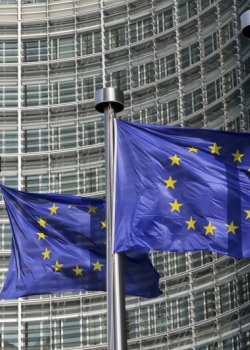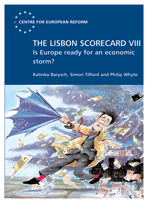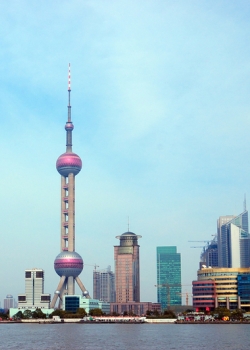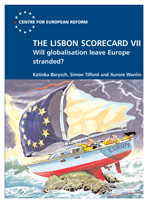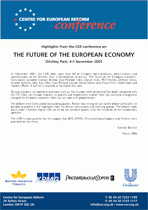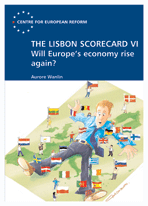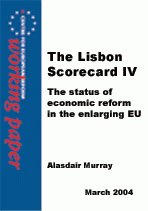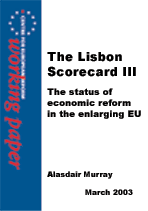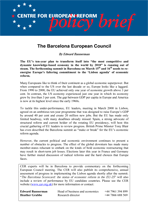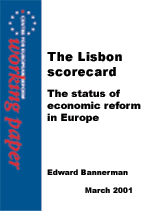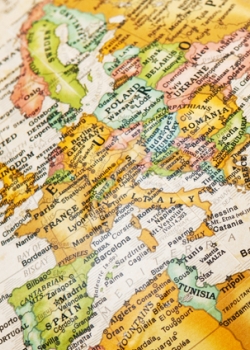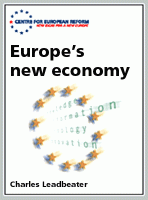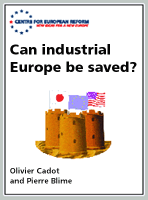Research & innovation
Is EU competition policy an obstacle to innovation and growth?
20 November 2008
European countries need to improve their record of developing high-tech businesses if they are to prosper. This was explicitly recognised in the EU's Lisbon agenda of economic reforms launched in 2000. The reasons for Europe's poor record of innovation are complex, but one factor may be competition policy.
Liberal reforms are no threat to social Europe
01 April 2008
Europeans have long sought to reconcile markets with social solidarity. The EU’s economic reform programme, the Lisbon agenda, falls squarely within this tradition. Launched in 2000, its vaulting ambition was to turn the EU into the “most competitive and dynamic knowledge-based economy in the world by 2010”.
The Lisbon scorecard VIII: Is Europe ready for an economic storm?
01 February 2008
After more than half a decade of economic gloom, the years 2006 and 2007 restored some much-needed optimism to Europe. Faster GDP growth and falling unemployment were at least partly due to the implementation of structural reform.
Industrial policy – back to the future?
01 June 2007
In his book ‘Testimony’, Nicolas Sarkozy, the newly elected French president, wrote that his finest hour as finance minister of France was the government’s rescue of Alstom, a French maker of high-speed trains and telecoms equipment. The company’s banks had refused to extend further credit, and with Siemens – a...
We are all Nordic now, or are we?
02 April 2007
The EU drew up its Lisbon reform agenda in 2000 with the thinly disguised goal of catching up with the US. But the idea that Europe should strive to adopt ‘Anglo-Saxon’ capitalism is abhorrent to those who cherish Europe’s more extensive welfare states.
The Lisbon scorecard VII: Will globalistion leave Europe stranded?
01 February 2007
Globalisation and the rapid integration of China and India into the international economy present huge opportunities for the European Union.
The future of European universities: Renaissance or decay?
01 June 2006
Knowledge is an increasingly critical factor in shaping economic life. But in Europe, the institutions that should be the main sources of knowledge are failing to meet the challenge.
Ditchley conference note - The future of the European economy
21 March 2006
In November 2005, the CER took more than 40 of Europe's top economists, policy-makers and commentators to the Ditchley Park in Oxfordshire to discuss 'The future of the European economy'. Participants included Graham Bishop, Jean-Philippe Cotis, Daniel Gros, Will Hutton, DeAnne Julius, Anatole Kaletsky, John Kay, Mart Laar, Richard Layard,...
The Lisbon scorecard VI: Will Europe's economy rise again?
01 March 2006
The European Union and its 'Lisbon agenda' of economic reform, have received a battering over the past year. The pace of reform has remained slow in the big eurozone countries.
The Lisbon scorecard V: Can Europe compete?
01 March 2005
The EU is half-way through its ten year programme of economic reform, the 'Lisbon agenda'. The EU is unlikely to achieve its goal of becoming the world's most competitive and dynamic economy by 2010.
The Lisbon scorecard IV: The status of economic reform in the enlarging EU
05 March 2004
With cynicism, even derision – this is how many Europeans look at the EU's key economic target, namely to become the "most competitive and dynamic, knowledge-based economy in the world" by 2010.
The Lisbon scorecard III: The status of economic reform in the enlarging EU
07 March 2003
Three years into the EU's Lisbon economic reform agenda, the EU remains far from meeting its goal of becoming the 'most dynamic and competitive knowledge-based economy in the world by 2010'.
The Barcelona European Council
01 March 2002
The EU's ten-year plan to transform itself into "the most competitive and dynamic knowledge-based economy in the world by 2010" is running out of steam. The forthcoming summit in Barcelona on March 15 and 16 needs to reenergise Europe's faltering commitment to the 'Lisbon agenda' of economic reform.
The Lisbon scorecard: The status of economic reform in Europe
02 March 2001
It will be left to future historians to appreciate fully the significance of the Lisbon Summit of March 2000 in the economic evolution of Europe. But it is already possible to argue that its impact could be even more farreaching than that of the euro.
The "open method of co-ordination": Innovation or talking shop?
01 December 2000
At the 'dot.com' Summit AT Lisbon in March 2000, the EU set itself the strategic goal of creating full employment in a competitive and inclusive knowledge-based economy.
Europe's new economy
01 December 1999
Europe needs a new economic story. Its ability to compete in the knowledge-driven economy depends on how well it can translate science, technology and know-how into jobs, growth and economic success.
Issue 15 - 2000
26 November 1999
- Set a date for enlargement now, Heather Grabbe
- The unholiest of alliances, Charles Grant
- The "open method of co-ordination": Innovation or talking shop?, Kirsty Hughes
Europe's new economy
05 November 1999
Europe needs a new economic story because it faces a new economic challenge. The challenge is to transform European science and technology, knowledge and creativity, into jobs, growth and economic success.
Entrepreneurial Europe
02 August 1999
Europe's biggest economic problem is that it lacks the kind of entrepreneurial culture that powers America's economy. There are not enough start-up companies or large companies that are capable of innovation.
Can industrial Europe be saved?
13 September 1996
Pessimists claim that the European economy is sinking under the weight of an over-regulated labour market and a costly welfare state. Taking a hard-headed look at the facts, Olivier Cadot and Pierre Blime find that Europe's competitive position in manufacturing has declined, industrial Europe is facing declining market shares in...








